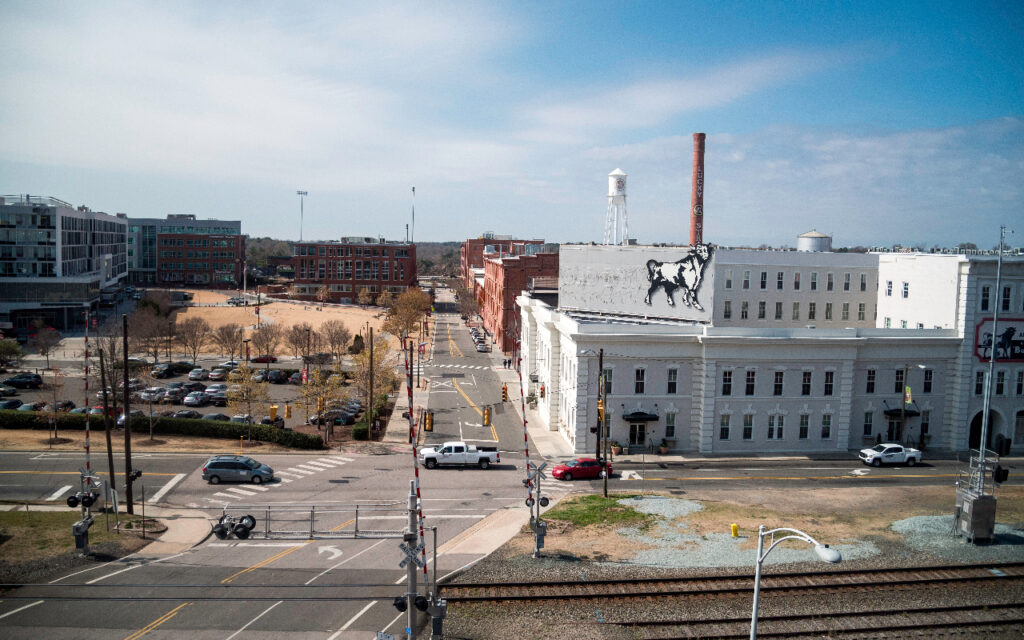
En septiembre pasado se realizó una audiencia pública en el condado de Durham, por parte de la Asamblea General de California del Norte, para que los ciudadanos pudieran debatir y formar parte del proceso de redistritación de acuerdo con el Censo 2020.
Así, un grupo de latinos organizados por Ivan Almonte, de Rapid Response, acudió a las audiencias; sin embargo, éstas se realizaron en horarios prácticamente imposibles para que la gente pudiera acudir, además de que eran en inglés y sin traducción.
Cabe señalar que Durham es la cuarta ciudad en donde más ha crecido la población en Carolina del Norte, y la comunidad latina aumentó 40 por ciento en los últimos 10 años; sin embargo, muchos de ellos son indocumentados y han sido desplazados de la ciudad por los procesos de gentrificación
Durante una conversación informal, en la que participó Ethnic Media Services, Almonte comentó que muchos latinos en Durham se sienten invisibles e impotentes a la hora de influir en las instituciones sobre este tipo de asuntos, decisivos para el futuro de la comunidad.
Patricia Obregón, quien lleva 14 años en Durham, dijo que para ella tendría que cambiar todo el sistema educativo porque no está creado para las minorías, y cualquier decisión que se toma “nosotros no estamos representados ni a la vista en ninguna de estas decisiones”.
La organizadora comunitaria en materia de escuelas públicas destacó que, por ejemplo, los padres que trabajan muy tarde tienen que buscar de muchas maneras que alguien pueda ir por sus hijos porque hay un problema de transportación, y aunque están intentando sacarlo adelante las escuelas no tienen presupuesto.
«A ello se suman problemas como la gran cantidad de estudiantes que existe por salón, la falta de programas, intérpretes y maestros para niños con capacidades especiales, por lo que una de las principales inversiones que debe hacer el estado en la próxima década es en educación».
Casilda Jaimes, quien ha trabajado con mujeres víctimas de violencia doméstica, señaló que ha observado la problemática de cómo la comunidad intenta acceder a servicios, pero ha sido difícil el proceso debido a que no hablan inglés.
Para las mujeres, tampoco hay un programa que las ayude a representarse en la comunidad después de haber sufrido violencia, después de haber perdido mucho al mudarse a un lugar nuevo, no encontrar el apoyo de las autoridades, y es el mismo caso para los jóvenes.
«Todos los programas deberían empezar desde la escuela. Debería haber un programa de consejería para los hispanos, servicios de salud mental, sobre todo en este periodo de la pandemia que se ha agravado, y es un tema que no se habla, al que no se tiene acceso», destacó.
Añadió que si bien se tiene el servicio de salud mental, éste es limitado porque no hay doctores que hablen el idioma para que puedan atender a las personas latinas, y la gente tiene que llevar un intérprete, lo cual es impensable para una persona que va a solicitar ese tipo de ayuda porque se hablan temas muy personales.
«De ahí que la redistribución de distritos se debe de reconsiderar basado en que a nuestra comunidad le ha costado mucho adaptarse, entonces, si los distribuyen nuevamente y los mueven a otros lugares van a tener que empezar de nuevo, buscar con quién pueden contar en su comunidad».
Laura Enaine, quien ha trabajado 20 años con la comunidad de escasos recursos, indicó que una cosa que le impactó fue la distribución de presupuesto en sectores de bajos recursos en el tema de vivienda, porque le tocó estar en vecindarios descuidados, con poca iluminación y sin mantenimiento.
Esto, a pesar de que la alcaldía tenía una aplicación en la que la ciudadanía podía enviar sus quejas, pero esa aplicación no era funcional, por lo que muchos de la comunidad latina sienten que se tienen una buena representación, especialmente en comunidades de escasos recursos.
Al respecto, comentó que las viviendas existentes para apoyar a estas comunidades tampoco tienen mantenimiento: están sucias y descuidadas, a pesar de que están pagando una renta y de que la ciudad tiene el personal necesario para hacer las inspecciones.
«Este fue todo un tema porque con la pandemia mucha gente se tuvo que ir de sus departamentos o vender sus casas, muchas de ellas se tuvieron que ir a vivir a zonas donde los índices delictivos y la violencia eran muy altos, y han sido víctimas del crimen».
El problema de la vivienda pública es crítico entre los hispanos, pues por no tener un estatus migratorio no tienen acceso a este tipo de vivienda, incluso en Durham, un lugar que se dice progresista y liberal, y que es la cuarta ciudad que más creció en el estado.
Te puede interesar: Comunidades minoritarias en Carolina del Norte buscan redistritación justa

